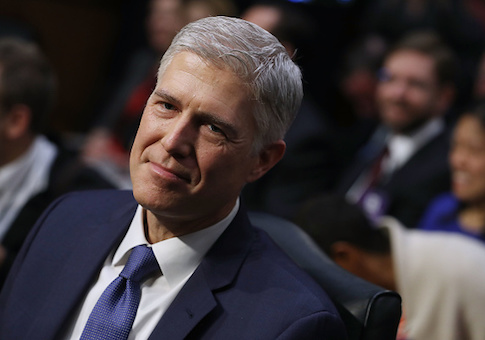Justice Neil Gorsuch has issued his first Supreme Court opinion, with a unanimous court backing the recently appointed justice.
The opinion was released after the nation's highest court ruled Monday that a company involved in a debt collection dispute does not fall under a federal law that protects consumers from dishonest and exploitative debt collectors, limiting the law's reach.
The case, Henson v. Santander Consumer USA Inc., concerned the federal statutory definition of "debt collector" under the Fair Debt Collection Practices Act, or FDCPA.
CitiFinancial Auto had loaned money to petitioners to buy cars, but the petitioners defaulted on their auto loans. Santander purchased the resultant debt from CitiFinancial and attempted to collect on it.
The court's judgement hinged on whether Santander was acting more like a third-party debt collector or a primary creditor. Does the FDCPA, in Gorsuch's words, "treat the debt purchaser in that scenario more like the repo man or the loan originator?" The opinion concluded more the latter, rejecting the petitioners' suit brought against Santander.
Gorsuch's writing style, which has been described as breezy and clever, was on display from the opinion's first sentence.
"Disruptive dinnertime calls, downright deceit, and more besides drew Congress's eye to the debt collection industry," he wrote, summarizing the legislative history of the FDCPA.
Gorsuch discussed the wording of the law, among other issues, to argue why the court dismissed the petitioners' suit, affirming a lower court's ruling.
"If Congress wanted to exempt all present debt owners from its debt collector definition, petitioners submit, it would have used the present participle 'owing.' That would have better sufficed to do the job—to make clear that you must collect debts currently 'owing ... another' before implicating the Act," Gorsuch wrote. "But this much doesn't follow even as a matter of good grammar, let alone ordinary meaning."
The high court's newest member concluded that debt collector laws may change in the future but not the role of the judiciary in analyzing them.
"Constant competition between constable and quarry, regulator and regulated, can come as no surprise in our changing world," Gorsuch wrote. "But neither should the proper role of the judiciary in that process—to apply, not amend, the work of the People's representatives."
